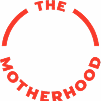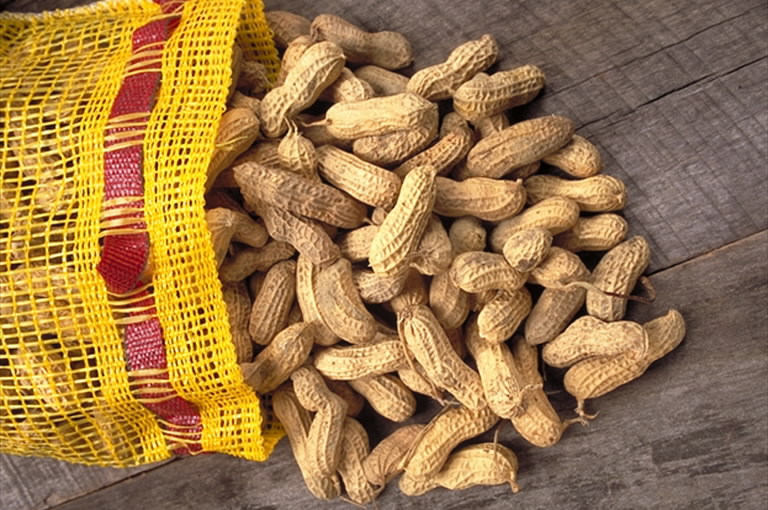On April 26, 2011, a number of women came to TheMotherhood to join Marion Groetch, MS, RD, CDN, senior dietitian at the Jaffe Food Allergy Institute at Mount Sinai School of Medicine, and a recognized nutrition authority in the field of food allergies, to learn about common myths and misunderstandings involving food allergies.
“We hope today’s Talk helps clarify the facts, not the myths associated with managing food allergies,” said Lori Sandler, founder of Divvies Bakery and author of The Divvies Bakery Cookbook, who hosted the class with Marion.
A lively and insightful discussion followed. Read on to learn about common food allergy myths and realities, or click the “View Talk” button to read the entire conversation!
Myth #1
Food allergy and food intolerance are the same thing.
Reality: Food allergy and food intolerance are not the same.
According to host Marion Groetch, “Food allergy is defined as an adverse reaction caused by an immune response that occurs reproducibly on exposure to a given food.
“While food intolerance is an adverse reaction to a food, it is not mediated by the immune system. Lactose intolerance is a good example of a food intolerance. It is caused by a deficiency of the lactase enzyme, which makes digestion of the milk sugar, lactose, difficult. The immune system is not involved.”
“I think this myth makes it MUCH more difficult for people with food allergies,” said participant Christy, More Than Mommy. “Many people believe that it’s a trivial issue because people claim they have allergies when they don’t.”
Agreed co-host Anne-Marie, The Write Spot, “Totally understand the difference now that I’ve developed sensitivities while my daughter has to deal with nut allergies. But most people don’t get it. It’s up to us, I guess, to educate about the difference and how the body reacts to allergies (can be life threatening) than sensitivities (painful, but probably won’t kill you).”
Myth #2
It’s easy to manage a food allergy … just avoid the food!
Reality: Allergen avoidance is not always straightforward. There are many nuances even to something as simple as label reading.
Avoidance means diligence in the grocery store, in the home kitchen, in restaurants, while visiting friends or going to school or camp … avoidance is part of every day life for families with food allergy.
“My son gets upset” about avoiding foods containing his allergen, said co-host Carmen, Mom to the Screaming Masses, “but he does understand that he has an allergy. I try to make a safe alternative – I made peanut butter cups for Easter and made soy butter ones as well – he was really happy.”
On the other hand, “my daughter doesn’t want to be itchy again and is happy to do anything to avoid that,” pointed out co-host Jodi, Mom’s Favorite Stuff.
As for those who believe food allergies can be cured, “there is NO cure for food allergy!” said host Lori Sandler. “Avoidance of the identified allergen is the only way to prevent food allergic reactions.”
“I think people hear about ‘treatments’ in the news and confuse that word with ‘cure,’” added participant Susan, Peanuts in Eden.
Host Marion Groetch noted, “Through the Consortium of Food Allergy Research, we have developed an extensive food allergy education program that is free and downloadable. There are handouts on all of these topics and a short video that reviews the highlights of the program.”
Here is the website: https://web.emmes.com/study/cofar/EducationProgram.htm
Myth #3
Allergies to milk, egg and wheat are bothersome, but they are not severe and will not lead to anaphylaxis.
Reality: Any food can cause anaphylaxis, but those with peanut, tree nut and seafood allergies are at high risk of anaphylaxis.
“Understanding what factors push a mild reaction to anaphylaxis is very important,” said participant williamsmummy, pointing to factors such as “alcohol/stress, such as exam stress; time of the month for woman; poor asthma control; environmental allergies, such as hay fever; poor health, e.g., recovering from viral or bacterial infection.”
Participant Julie Trone agreed, “The immune system strength sure does play a huge role” in the severity of a reaction, adding that “the amount of allergen ingested” is also important – “thus the reason for each reaction to be unpredictable.”
“How many people have been told: Just let them eat a little – it won’t harm. OR: they can build up a tolerance – a little won’t hurt,” said co-host Carmen, Mom to the Screaming Masses. “Those are two HUGE and very harmful myths.”
Co-host Anne-Marie, The Write Spot, agreed, “NOT with allergies. They are doing ‘sensitivity training’ type tests, but in a hospital setting with nurses and doctors available and constantly monitoring. It’s not something to be done casually.”
Myth #4
In the U.S., all ingredients must be listed on a product label.
Reality: A major food allergen may not be omitted from the product label even if it is only a minor ingredient. But allergens not considered major allergens may remain unidentified on product labels.
Additional Ambiguities: Cross contact can occur when safe foods come in contact with an allergen, causing the safe food to contain small amounts of unintentional allergenic ingredients.
“This is also more common that people imagine,” said co-host Niri, Mommy Niri.
“Be sure to read and re-read product labels every time you purchase an item! When in doubt, contact the manufacturers directly for product information,” said host Lori Sandler. “If you are not given a definitive answer regarding allergen safety, play it safe and avoid the food product!”
Myth #5
Using a product with a precautionary label that says “may contain peanuts” is riskier than using a product that says “manufactured in a facility that manufactures products containing peanuts.”
Reality: Precautionary labels are unregulated. Studies that have looked at risks associated with precautionary labels did not find a correlation between the type of advisory statement and a degree of risk.
“You cannot assess the degree of risk based on the type of precautionary label used,” said host Lori Sandler. The U.S. Food Allergy Guidelines suggest avoiding products with a precautionary label for your allergen.
It’s a “very common misconception that certain precautionary labels carry greater risk,” noted host Marion Groetch. “How many of you have thought in the past that a product that said ‘manufactured in a shared facility with…’ was safer than a product that said ‘may contain…’?” In reality, you should avoid foods with any label indicating that it may contain any trace of your allergen.
Myth #6
Food manufacturers must label a product with an advisory statement if that product has come in contact with a major allergen.
Reality: Advisory labeling is voluntary and unregulated. Host Marion Groetch has reported that overall 7% of all products with advisory statements (such as “shared facility” or “shared equipment” or “may contain” labels) that were tested contained detectable allergen residue.
If you are unsure whether a product might contain your allergen, you can always call the company directly.
However, “I get very frustrated when I call a company and the rep tells me they ‘follow good cleaning practices’ after sending an allergen through on shared equipment,” said participant Libby. “Would that person give their child a food that came off equipment that had processed rat poison, as long as it was cleaned well afterward?”
Host Marion Groetch suggested, “Sometimes it is best to get past the person reading from the script. If I am not comfortable that the person answering my questions is knowledgeable, I ask to speak to the quality control manager.”
Myth #7
Children with food allergies are not at increased nutritional risk.
Reality: Children with multiple food allergies or milk allergies are at increased risk of nutrient deficiencies; nutritional rickets; shorter stature; failure to thrive! (Isolauri J. Pediatri 1998, Christie et al JADA 2002, Jensen et al Pediatr. Allergy Immunol 2004)
So it’s important to make sure your child is getting the nutrients he or she needs, despite food allergies! Speak to a doctor or an allergist about safe alternatives.
Additional myth – allergic reactions
“People often think that allergic reactions get worse every time, this again is a myth,” said participant williamsmummy. “Each reaction should be viewed individually, and symptoms differ wildly. Understanding when things are life threatening is crucial.”
“On the flip side, many people assume that their reactions won’t get worse,” noted participant Christy, More Than Mommy. “That can be a dangerous assumption, too.”
Additional reality – outgrowing food allergies
“One of the things I encounter is whether or not kids will grow out of food allergies,” said co-host Caryn, Rockin’ Mama. “I think it really depends on the allergy, the severity of the allergy, whether or not said food has been omitted, and the individual child.”
“My son grew out of lactose intolerance, which he had as an infant. He still has allergies to peanuts and walnuts,” said co-host Ellen, Love That Max.
“We retest every year. Levels change and my son outgrew coconut and almond” allergies, added Carmen, Mom to the Screaming Masses.
“Food allergies play such an important role in our lives as a family, and these talks have been so wonderful!” said participant Gabrielle. “It’s so great to talk to other moms who are going through the same thing and all the advice has been awesome!”
Resources
Find food allergy awareness bracelets: www.allerbling.com. (Gabrielle)
Helping moms make sense of food allergies: http://www.dotcomsformoms.com/making-sense-of-food-allergies (Sandra)
Learning the reality of food allergies the hard way: http://ti.me/a0fQZY (Libby)
Thanks to Marion Groetch and Lori Sandler for helping us dispel the common myths about food allergies, and thank you to these amazing co-hosts for their contributions!!
Caryn, Rockin’ Mama
Jodi, Mom’s Favorite Stuff
Niri, Mommy Niri
Anne-Marie, The Write Spot
Ellen, Love That Max
Carmen, Mom to the Screaming Masses
See the original Talk here: http://tmotherhood.wpengine.com/talk/show/id/62180

